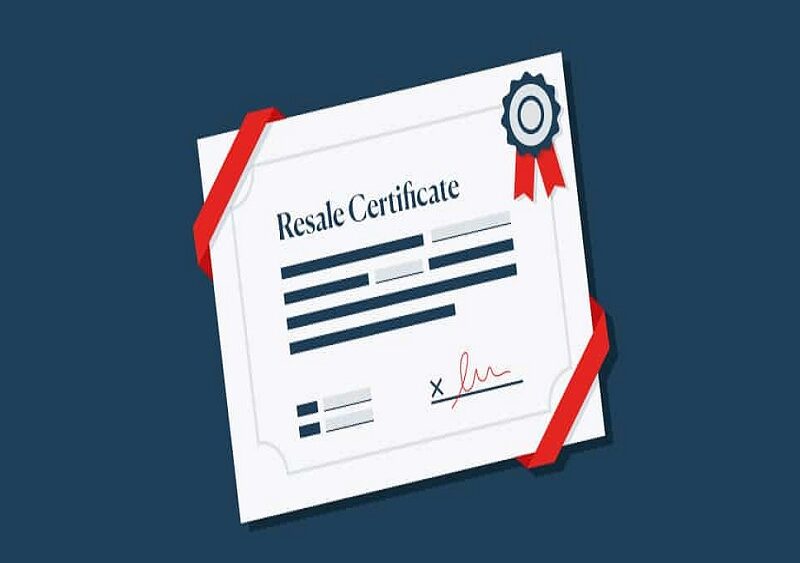A resale certificate is a document the government grants that permits businesses to buy goods without paying taxes, as these items will be sold to consumers later. The main goal of a resale certificate is to simplify the sales tax procedure and avoid taxing goods as they pass through the supply chain.
Here are some key purposes and aspects of resale certificates:
Compliance with tax regulations: Resale certificates are essential for businesses to comply with state and local tax regulations. Tax authorities may require businesses to maintain accurate records of sales transactions, and resale certificates play a crucial role in documenting exempt sales.
Streamlining business transactions: Resale certificates facilitate smoother business transactions between wholesalers and retailers. They reduce the administrative burden on sellers by allowing them to avoid collecting sales tax from buyers purchasing items for resale.
Verification of resale intent: The resale certificate serves as a declaration by the buyer that they intend to resell the purchased items and not use them for personal consumption. This helps tax authorities ensure that the tax exemption is being appropriately claimed by businesses engaged in resale activities.
Facilitates wholesale purchases: Many wholesalers and distributors require a resale certificate from buyers. This certificate assures wholesalers that they are selling to a legitimate business engaged in resale, and it allows the buyer to make tax-exempt wholesale purchases.
Uniformity and standardization:Wholesale license in Florida provide a standardized form that buyers can use, promoting uniformity in the process. This helps buyers and sellers understand the sales tax exemption requirements.
Record-keeping and compliance: Resale certificates help businesses maintain accurate records of their purchases for resale. This documentation is important for regulatory compliance and audit purposes. It provides evidence that the business follows the appropriate tax-exempt purchase procedures.
Interstate commerce: In the context of interstate commerce, a resale certificate may also be used to exempt purchases from sales tax when goods are bought in one state for resale in another. This helps businesses engaged in interstate trade avoid paying sales tax multiple times as the goods move through different jurisdictions.
Ease of administration: Resale certificates make the administrative process more straightforward. Businesses can focus on their core operations without the burden of managing sales tax payments for goods that will be resold.
Supporting documentation for audits: During tax audits, businesses may be required to provide documentation to support their claims of tax exemptions. Resale certificates are crucial supporting documents demonstrating that the purchases were made for resale and are eligible for sales tax exemption.
Preventing tax evasion: Resale certificates help prevent tax evasion by ensuring businesses only claim tax exemptions on items genuinely intended for resale. Tax authorities may scrutinize resale certificates to verify the legitimacy of tax-exempt transactions.
Avoiding double taxation: Without a resale certificate, businesses might end up paying sales tax on both the purchase and the final sale of goods. The resale certificate helps prevent double taxation by allowing businesses to defer the payment of sales tax until the items are sold to the end consumer.
Key Takeaway
Resale certificates are crucial in facilitating business transactions, preventing double taxation, and ensuring compliance with sales tax regulations. They are essential for businesses engaged in the resale of goods and are a key tool in managing the complexities of sales tax in various jurisdictions

